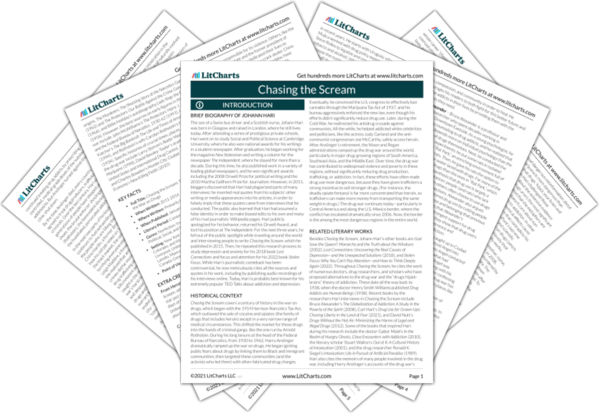Throughout this book, Hari has argued that people’s political attitudes toward drugs are based in their emotional responses to drugs—which, in turn, depend on the drug users they may know and the stories they believe about drugs. Goulão made this same observation, and he turned it to his political advantage. Rather than harnessing people’s resentment and anger toward addicts, like Anslinger did in the U.S., Goulão channeled their love and sympathy—just like Gabor Maté and Bruce Alexander suggest. It’s crucial to distinguish between Portugal’s
decriminalization policy, which still restricts the supply of drugs to the black market, from
legalization policies that create well-regulated drug markets and cut criminal gangs out of the equation. Of course, decriminalization is a crucial step toward legalization, and Hari argues that Portugal very well may have chosen legalization if it weren’t for the political pressures it faced.
